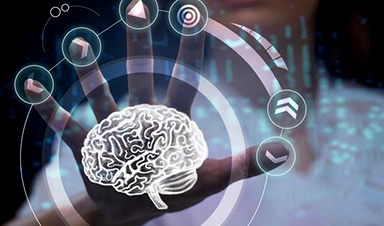Some medical technologies that use artificial intelligence might benefit patients but result in a drop in health system revenues. This could make widespread adoption of AI in medicine a tough sell.
Healthcare is a world of perverse incentives. One person’s waste is another person’s annual bonus. If you have shares in Novo Nordisk, you don’t really want people to eat more fruits and vegetables, because then sales of diabetes meds might drop. The same is true on a larger scale for hospital systems that get paid to conduct tests and perform surgeries instead of keeping people healthy.
It doesn’t pay—yet—to keep people healthy. Many entrepreneurs and government leaders are dragging the American healthcare system away from the fee-for-service model, but the road to pay for performance medical care is long and winding.
HeartFlow is the perfect example of how a positive change for patients could mean a drop in health system revenues. The company’s goal is to improve care for heart disease by avoiding both under- and over-treatment. HeartFlow takes data from a CT scan and turns it into a 3D model of the veins and arteries that supply blood to the heart.
“If our system is adopted, the net annual savings would be $2 billion for one commercial payer,” said John Stevens, MD and president of HeartFlow. “We could avoid 250,000 unnecessary procedures and even save 30,000 lives.” Stevens shared these shocking numbers at HLTH 2018 in early May in Las Vegas.
Image Credit: From article
News This Week
Scientists Trap Thyme’s Healing Power in Tiny Capsules
A new micro-encapsulation breakthrough could turn thyme’s powerful health benefits into safer, smarter nanodoses. Thyme extract is often praised for its wide range of health benefits, giving it a reputation as a natural medicinal [...]
Scientists Develop Spray-On Powder That Instantly Seals Life-Threatening Wounds
KAIST scientists have created a fast-acting, stable powder hemostat that stops bleeding in one second and could significantly improve survival in combat and emergency medicine. Severe blood loss remains the primary cause of death from [...]
Oceans Are Struggling To Absorb Carbon As Microplastics Flood Their Waters
New research points to an unexpected way plastic pollution may be influencing Earth’s climate system. A recent study suggests that microscopic plastic pollution is reducing the ocean’s capacity to take in carbon dioxide, a [...]
Molecular Manufacturing: The Future of Nanomedicine – New book from Frank Boehm
This book explores the revolutionary potential of atomically precise manufacturing technologies to transform global healthcare, as well as practically every other sector across society. This forward-thinking volume examines how envisaged Factory@Home systems might enable the cost-effective [...]
New Book! NanoMedical Brain/Cloud Interface – Explorations and Implications
New book from Frank Boehm, NanoappsMedical Inc Founder: This book explores the future hypothetical possibility that the cerebral cortex of the human brain might be seamlessly, safely, and securely connected with the Cloud via [...]
Global Health Care Equivalency in the Age of Nanotechnology, Nanomedicine and Artificial Intelligence
A new book by Frank Boehm, NanoappsMedical Inc. Founder. This groundbreaking volume explores the vision of a Global Health Care Equivalency (GHCE) system powered by artificial intelligence and quantum computing technologies, operating on secure [...]
Miller School Researchers Pioneer Nanovanilloid-Based Brain Cooling for Traumatic Injury
A multidisciplinary team at the University of Miami Miller School of Medicine has developed a breakthrough nanodrug platform that may prove beneficial for rapid, targeted therapeutic hypothermia after traumatic brain injury (TBI). Their work, published in ACS [...]
COVID-19 still claims more than 100,000 US lives each year
Centers for Disease Control and Prevention researchers report national estimates of 43.6 million COVID-19-associated illnesses and 101,300 deaths in the US during October 2022 to September 2023, plus 33.0 million illnesses and 100,800 deaths [...]














Leave A Comment